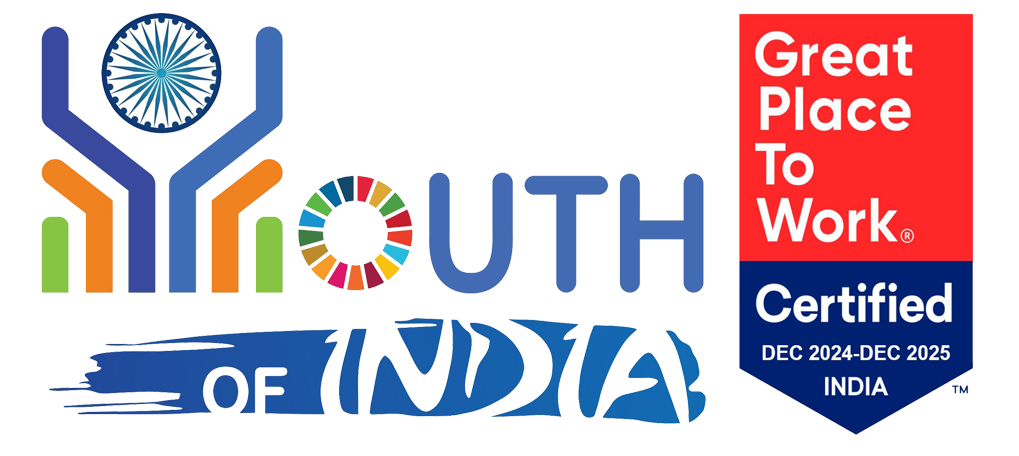Youth For Green Hydrogen appoints Thembekile Maseko as Youth4GH2 Advocate in South Africa
To support the global energy transition agenda and mainstream the Green Hydrogen, the Youth For Green Hydrogen is localising its initiatives by appointing Advocates and Ambassadors across the globe in strengthening the local and regional chapters in the region. The objective of such chapters is to introduce the Green Hydrogen discourse to the public through an intergenerational perspectives; raise awareness about opportunities available for the youth in leading Green Hydrogen; bring the leadership of women, girls and marginalised communities on Climate Action and accelerate the youth solutions for climate action.
To achieve the Sustainable Development Goals (SDGs), the world needs to leverage the full potential of all generations. Partnerships across generations is key for sustainable development. We must collaborate to foster successful and equitable intergenerational relations and partnerships to ensure “no one is left behind.”
The number of youth between the ages of 15 and 24 is 1.1 billion; youth constitute 18 percent of the global population. Youth and children together, including all those aged 24 years and younger, account for nearly 40 percent of the world’s population. The number of youth in the world is projected to grow by 7 percent to 1.3 billion by 2030, the target date for achieving the Sustainable Development Goals (SDGs). Around 2065, the world’s youth population is projected to reach its peak, at just under 1.4 billion persons (13%). The share of youth in the total population peaked at 19.3 percent in 1985. In 2019, Central and Southern Asia were home to the largest number of youth (361 million), followed by Eastern and South-Eastern Asia (307 million) and sub-Saharan Africa (211 million). In the 47 least developed countries, the youth population is projected to increase by 62 percent over the next three decades, rising from 207 million in 2019 to 336 million in 2050. The largest increases are expected in sub-Saharan Africa (+89%), Oceania3 (+38%) and Northern Africa and Western Asia (+28%)
Young leaders from around the world issued a clear call to action to reset the energy transition, and they urged more young people to join them in demanding bolder clean energy and climate progress. Inequalities and discrimination faced by young people in the renewable energy workforce prevent too many of them from realizing their full potential as agents of change. This means that the sector is missing out on benefiting from an entire talent pool. To unlock jobs and economic opportunities in the renewable energy sector, young people need a formal seat at the energy transition decision-making table. Inclusion of young people in the energy transition will not be achieved through a “business as usual approach”. There are serious intersectional equity concerns that need to be addressed in the energy industry at large as we work to change the system. “The clean energy economy workforce is older, dominated by male workers, and lacks racial diversity when compared to all occupations nationally,” states a recent Brookings Institute report.
The United Nations’ Marrakech Partnership’s Energy Pathway foresees 500-800 gigawatts (GW) of green hydrogen electrolysis deployment by 2030, consistent with the International Energy Agency’s (IEA) recent Net Zero 2050 scenario.
The growth in renewable investment calls for youth engagement, access to finance, skills and education that would promote innovation and governance in the sector. According to the International Renewable Energy Agency (IRENA), the off-grid value chain alone, including sales, marketing, installation and services, could create at least 4.5 million jobs globally by 2030 and the Global energy investment is set to increase by 8% in 2022 to reach USD 2.4 trillion.
Role of South Africa in Green Hydrogen
South Africa’s hydrogen ambitions are driven partly by its decarbonization goals, and partly by a desire to support economic growth and exports. Hydrogen is seen as an opportunity to revamp the country’s industrial sector and achieve its emissions reduction goals by 2050 while reducing socioeconomic inequality. The country’s vision is guided by its Hydrogen Society Roadmap (HSRM) released last February, which sets clear targets to reach by 2050. South Africa aims to deploy 10 gigawatts (GW) of electrolysis capacity in Northern Cap by 2030 and produce about 500 kilotons of hydrogen annually by 2030. This growth is forecasted to create 20,000 jobs annually by 2030 and 30,000 by 2040.
The government also relies on global partnerships and foreign investments to kick-start its hydrogen production. It is currently developing its first Country Investment Strategy (CIS), aiming to attract more foreign and domestic direct investment into the country. In January 2022, the government announced a new collaboration with the German Ministry of Economic Cooperation and Development (BMZ) to launch a new project that will promote green hydrogen production in South Africa. BMZ will provide €12.5 million in funding to support the project, which aims to produce a strategic and regulatory framework for the green hydrogen economy in South Africa.
Role of Youth4GH2 Advocate in South Africa
The Advocateof South Africa has signed up to strengthen Youth For Green Hydrogen through:
- To participate in and follow all steps of the Youth For Green Hydrogen AmbassadorProgramme, including but not limited to online/offline training activities and team meetings;
- To bring 10 educational institutions in South Africa to sign up for the Youth For Green Hydrogen University Clubs;
- To organize at least one local advocacy event with local/regional and/or national stakeholders;
- To engage universities across South Africa to create awareness about Green Hydrogen by hosting dialogues, networking events, discussions, and research on green hydrogen;
- To get 500 signatures in promoting student participation for the creation of a Global Green Hydrogen Day; and
- To develop a National Chapter of Youth For Green Hydrogen in South Africa
